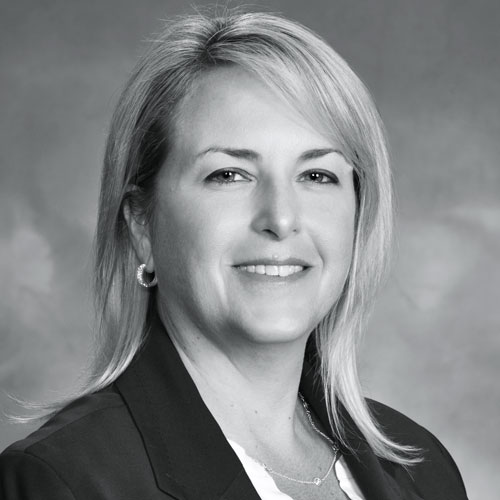In the human body, the circulatory system transports oxygenated blood and essential nutrients to a person’s vital organs. When it’s not functioning at its full capacity, the rest of the body suffers and struggles to stay healthy.
Although businesses don’t have circulatory systems, Gary Tully sees it as an apt comparison when he thinks about the contract management system at Gilead Sciences, where he serves as the head of legal operations. The company specializes in developing medications for unmet medical needs, such as HIV/AIDS, liver diseases, cancer, inflammatory and respiratory diseases, and cardiovascular conditions.
Tully is responsible for strategic planning of the legal department’s global technology portfolio, managing its outside counsel spend, and providing stakeholders the ability to quickly navigate through the company’s legal contracts in a central repository. Since joining the company in June 2015, the latter issue has been one of Tully’s main priorities.

After arriving at Gilead, Tully realized there was a tremendous opportunity to improve the management of the company’s global contracts. Now a $30 billion company, Gilead had quickly outgrown its existing contract management system, which made it difficult for employees to input, access, and extract critical information from documents it stored; the company’s circulatory system was clogged.
“We found that users were challenged to locate agreements in the system, and we identified two things that made it difficult,” Tully says. “First, the lack of meaningful
metadata describing a contract restricted the ability to search effectively to find a specific contract. Second, the user interface was not intuitive enough for the average user to understand what type of data needed to be entered, which caused bad data to be put into the system.”
Part of the inaccuracy stemmed from a number of factors that are common during the process of creating a contract. Often, corporations will use email and the track changes features of Microsoft Word to negotiate contracts, sending versions of the agreement back and forth until agreement on terms is met. The side effect of this process is users on both sides are left with several versions of an agreement, and proper record-keeping practices dictate a need to identify a final, fully executed agreement.
Before implementing a solution, Tully spoke with various Gilead stakeholders across commercial contracts, procurement, and other departments to understand what they were looking for in their ideal contract management system. From there, he realized he needed to find technology that fulfilled two goals: the ability to store information for all contracts in a central location and a system that automated as much data entry as possible.
“Getting that information was key,” Tully says. “We focused all of our efforts in this first phase toward delivering a solution that would improve upon the challenges we saw in the previous system.”
Armed with information from stakeholders around the company, Tully began his search for a new contract management system. He partnered with his colleagues in various business units, the corporate legal team, and industry experts from Duff & Phelps to help evaluate the market, and together they kick-started a thorough selection process to find the best fit for Gilead. In the end, he opted for a hosted solution primed to vastly expand the company’s capabilities in managing their contracts. Officially rolled out in September 2017, significant efficiency gains have already been realized, including much greater accuracy around contract metadata.
Part of the strategy to improve data quality was to reduce the number of fields that are manually entered by users of the system. Data entry for new contracts has been reduced to only five information fields, and three of those fields are auto-populated by technology. A person entering the remaining two fields just needs to verify the information is accurate and upload the contract into the system. Rather than performing each of these steps manually, the new process utilizes artificial intelligence to capture another twenty-five fields of information and drastically reduce the possibility of errors.
“It has created more consistent data and a systemic method to correct future data entry errors,” Tully says. “By constantly improving the ability of our data entry, we create a capability to ensure we have high-quality data for use in managing our operations.”
Perhaps most importantly, the new system has freed Tully’s team of the labor-intensive manual data entry required for the numerous contracts that come across their desks every month. This allows the legal team to focus on partnering with Gilead’s executive leadership to help make sound business decisions, something Tully emphasizes as a leader. Having earned his MBA from Pepperdine University, Tully recognizes that having a broader understanding of a company’s business objectives can greatly enhance a lawyer’s ability to do their job.
“Given the talent of Gilead’s legal team, freeing up the lawyers to solve business problems is huge,” Tully says. “Our attorneys can be in the conversation to identify risk areas and to provide counsel while balancing business benefits along the way. The value that adds enhances the return on investment from the legal department.”
Although the new contract management system is still in its infancy, Tully says the company is already reaping the benefits of the streamlined system. The benefits will reduce the time needed to create finalized agreements, which will help Gilead serve patients better.
“Our contract management solution isn’t just creating efficiency for the legal department, it’s creating efficiency for the company to deliver the products and services to patients,” Tully says. “Gilead often has patients tell their stories about how the company’s products have improved their lives, and it puts a little more wind in your sails when you get to hear these stories and that you contributed in some way.”
Much like a circulatory system, an effective contract management solution can create efficiencies in a legal department to unclog resources, making them available to enhance their lines of business. In the case of Gilead Sciences, that means advancing therapeutics and improving lives.
As a trusted advisor to Gilead’s legal department, Duff & Phelps values our partnership with Gary Tully. Through his leadership and vision, Gilead is quickly becoming an industry leader in legal operational excellence. We thank Gary for his loyalty and look forward to celebrating his continued success.


